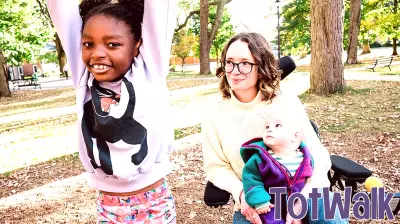November 28, 2024 - 17:35

A troubling new trend has emerged on social media, where some parents are turning to ChatGPT to craft elaborate lies for their children. Dubbed a "parenting hack," this approach raises significant ethical concerns. While the intention may be to entertain or simplify parenting challenges, relying on deception can have detrimental effects on the parent-child relationship.
Lying to children not only undermines trust but also deprives them of valuable learning experiences. Children learn best through honesty and transparency, and using fabricated stories can hinder their ability to discern truth from fiction. Moreover, the implications of normalizing dishonesty can extend beyond childhood, potentially shaping their moral compass as they grow.
Instead of resorting to lies, parents are encouraged to engage in open dialogues with their children. Honest communication fosters a stronger bond and equips kids with critical thinking skills. Ultimately, embracing authenticity in parenting is far more beneficial than any quick-fix hack that relies on deceit.



